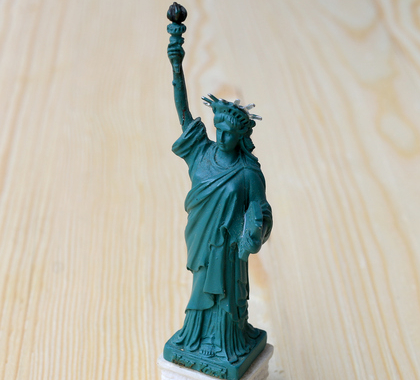America just finished celebrating Presidents Day, but in this instance, “celebrating” means something entirely different than it usually does. Few people—other than the “Not My President Day” crowd—did anything more to acknowledge our past and present commanders-in-chief than get out of town for the long weekend and sleep in a little later than usual on Monday morning.
Some suggest we don’t celebrate the achievements and contributions of our forefathers with fireworks and parades in part because Presidents Day takes place during the dreariest time of year, but I think it has more to do with the fact Americans, especially children, are ignorant of the great hardships our predecessors endured, as well as the triumphs they earned to win us the freedoms we now exercise and often take for granted.
The more I learn about our public education system, the more I suspect it is intentionally designed to keep kids ignorant of our history, rights, and freedoms. The Education Commission of the States and the National Center for Learning and Civic Engagement recently issued an updated review of the status of civic education in the United States. The report found states are requiring students to study civics but most are not making the mastery of civics education a priority. And judging from student outcomes, schools that are teaching civics aren’t doing it very well.
“Even though all 50 states and the District of Columbia technically require some civic education, advocates say many districts don’t take those policies very seriously, and few states actually hold schools accountable for students’ civics’ outcomes,” The Atlantic reported in 2015. “Just about a fourth of high school seniors in 2014 scored ‘proficient’ on the federal-government’s civics exam. Proficiency levels were equally lousy for eighth-graders.”
Similarly, in 2009, the Intercollegiate Studies Institute (ISI) released results from its “sixty-question multiple-choice exam on knowledge of American history, government, foreign affairs, and market economics.” ISI administered the survey “to over 14,000 college freshmen and seniors nationwide.” In ISI’s results for both 2006 and 2007, “The average freshman and average senior failed the exam.”
In 2008, ISI expanded the study to examine a “random, representative sample of 2,508 American adults.” ISI reported, “Respondents were asked thirty-three questions (click here to see the questions and take the quiz yourself), many drawn from U.S. naturalization exams and U.S. Department of Education high school progress tests (NAEP). Seventy-one percent of Americans failed this basic test. The overall average score was only 49 percent, with college graduates also failing at 57 percent.”
Are U.S. citizens’ dismal performances on civics-education exams a coincidence, or is the neglect of such education a deliberate maneuver by leftists who control our public education system?
“Self-government”—the foundation of everything taught in American civics—is opposed to modern liberal ideology, which seeks to tell everyone how to think and act so that the “collective” will supposedly end up better off. Knowing how our government works or should work according to our Constitution can’t possibly help the left succeed in accomplishing its mission to make as many people as possible dependent on an all-powerful government. It shouldn’t come as a surprise then that our public school systems, which are overrun with people who have accepted leftism, are disinterested in teaching children about their “inalienable” rights, checks and balances in government, and the clearly defined (and limited) enumerated powers in present in the Constitution.
Such a theory would also explain why civics education has been swept under the rug in favor of flashy trends such as “STEM” education and “career readiness training.”
Margaret E. Fisher, distinguished practitioner in residence at the Seattle University School of Law, is leading the Council on Public Legal Education’s Civic Learning Initiative “to bolster civic learning for Washington State students.” Fisher told me in an interview many educators she’s talked to say they simply don’t have time to teach civics, because the pressures imposed by higher authorities to prepare students for onerous standardized tests are overwhelming.
Patrick J. Deneen, who teaches political theory at the University of Notre Dame, asserts his students are “know-nothings,” and he sums up his theory why in an outstanding Free Porch Republic article: “Our students’ ignorance is not a failing of the educational system – it is its crowning achievement. Efforts by several generations of philosophers and reformers and public policy experts whom our students (and most of us) know nothing about have combined to produce a generation of know-nothings.
“We have fallen into the bad and unquestioned habit of thinking that our educational system is broken, but it is working on all cylinders,” Deneen wrote. “What our educational system aims to produce is cultural amnesia, a wholesale lack of curiosity, historyless free agents, and educational goals composed of contentless processes and unexamined buzz-words like ‘critical thinking,’ ‘diversity,’ ‘ways of knowing,’ ‘social justice,’ and ‘cultural competence.'”
Civics education has not simply fallen by the wayside; there is an ongoing, concerted effort to keep the masses ignorant of the rights and freedoms that are so dangerous to those who are working daily to grow an already massive government. How else can we explain the seemingly inexplicable decision made by the education establishment to refuse to teach our children the fundamental aspects and inner workings of our free society?
[Originally Published at Townhall]





